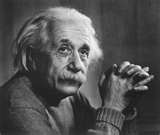 |
|
| Author |
 Topic Topic  |
|
|
kayjatta

2978 Posts |
 Posted - 13 Aug 2007 : 12:44:56 Posted - 13 Aug 2007 : 12:44:56


|
Staff Writer
SPACE.com
25 minutes ago
Editor's Note: We asked several scientists from various fields what they thought were the greatest mysteries today, and then we added a few that were on our minds, too. This article is one of 15 in LiveScience's "Greatest Mysteries" series running each weekday.
ADVERTISEMENT
How did the universe come to be?
It is perhaps the greatest Great Mystery, and the root of all the others. The rest of humanity's grand questions-How did life begin? What is consciousness? What is dark matter, dark energy, gravity?-stem from it.
"All other mysteries lie downstream of this question," said Ann Druyan, the author and widow of astronomer Carl Sagan. "It matters to me because I am human and do not like not knowing."
Even as the theories attempting to solve this mystery grow increasingly complex, scientists are haunted by the possibility that some of the most critical links in their chain of reasoning is wrong.
Fundamental mysteries
According to the standard Big Bang model, the universe was born during a period of inflation that began about 13.7 billion years ago. Like a rapidly expanding balloon, it swelled from a size smaller than an electron to nearly its current size within a tiny fraction of a second.
Initially, the universe was permeated only by energy. Some of this energy congealed into particles, which assembled into light atoms like hydrogen and helium. These atoms clumped first into galaxies, then stars, inside whose fiery furnaces all the other elements were forged.
This is the generally agreed-upon picture of our universe's origins as depicted by scientists. It is a powerful model that explains many of the things scientists see when they look up in the sky, such as the remarkable smoothness of space-time on large scales and the even distribution of galaxies on opposite sides of the universe.
But there are things about it that make some scientists uneasy. For starters, the idea that the universe underwent a period of rapid inflation early in its history cannot be directly tested, and it relies on the existence of a mysterious form of energy in the universe's beginning that has long disappeared.
"Inflation is an extremely powerful theory, and yet we still have no idea what caused inflation-or whether it is even the correct theory, although it works extremely well," said Eric Agol, an astrophysicist at the University of Washington.
For some scientists, inflation is a clunky addition to the Big Bang model, a necessary complexity appended to make it fit with observations. Nor was it the last such addition.
"We've also learned there has to be dark matter in the universe, and now dark energy," said Paul Steinhardt, a theoretical physicist at Princeton University. "So the way the model works today is you say, 'OK, you take some Big Bang, you take some inflation, you tune that to have the following properties, then you add a certain amount of dark matter and dark energy.' These things aren't connected in a coherent theory."
"What's disturbing is when you have a theory and you make a new observation, you have to add new components," Steinhardt added. "And they're not connected ... There's no reason to add them, and no particular reason to add them in that particular amount, except the observations. The question is how much you're explaining and how much you're engineering a model. And we don't' know yet."
An ageless universe
In recent years, Steinhardt has been working with colleague Neil Turok at Cambridge University on a radical alternative to the standard Big Bang model.
According to their idea, called the ekpyrotic universe theory, the universe was born not just once, but multiple times in endless cycles of fiery death and rebirth. Enormous sheet-like "branes," representing different parts of our universe, collide about once every trillion years, triggering Big Bang-like explosions that re-inject matter and energy into the universe.
The pair claims that their ekpyrotic, or "cyclic," theory would explain not only inflation, but other cosmic mysteries as well, including dark matter, dark energy and why the universe appears to be expanding at an ever-accelerating clip.
While controversial, the ekpyrotic theory raises the possibility that the universe is ageless and self-renewing. It is a prospect perhaps even more awe-inspiring than a universe with a definite beginning and end, for it would mean that the stars in the sky, even the oldest ones, are like short-lived fireflies in the grand scheme of things.
"Does the universe resemble any of the physical models we make of it? I'd like to hope that the effort society pours into scientific research is getting us closer to fundamental truths, and not just a way to make useful tools," said Caltech astronomer Richard Massey. "But I'm equally terrified of finding out that everything I know is wrong, and secretly hope that I don't."
Another Great Mystery: What Causes Gravity?
Top 10 Strangest Things in Space
Top 10 Star Mysteries
Original Story: Greatest Mysteries: How did the Universe Begin?
Visit SPACE.com and explore our huge collection of Space Pictures, Space Videos, Space Image of the Day, Hot Topics, Top 10s, Multimedia, Trivia, Voting and Amazing Images. Follow the latest developments in the search for life in our universe in our SETI: Search for Life section. Join the community, sign up for our free daily email newsletter, listen to our Podcasts, check out our RSS feeds and other Reader Favorites today!
Email Story IM Story Printable View RECOMMEND THIS STORY
Recommend It:
Average (0 votes)
» Recommended Stories
Science News
Endeavour crew prepares for spacewalk AP Race is on to detect dark matter AP 4 lawmakers doubt need to cut gases AP NASA awards $1.8B for moon mission motor AP Perseid Meteor shower peaks this weekend AP Most Viewed - Science
'Great Show': Perseid Meteor Shower Peaks Sunday Night SPACE.com Race is on to detect dark matter AP Stone Age Settlement Found Under English Channel LiveScience.com Perseid Meteor shower peaks this weekend AP NASA awards $1.8B for moon mission motor AP Science Video
NASA to inspect shuttle foam damage AP - Sun Aug 12, 12:18 AM ET Stargazers await meteor show BBC - Sun Aug 12, 7:27 AM ET Glacier Rams Sightseeing Ship ABC News - Thu Aug 9, 6:04 PM ET Why Sunday was cooler weather.com - Sun Aug 12, 4:30 PM ET
Sponsored Links( What's this? )
House Payments Fall Again
$430,000 Loan $1299/mo. No credit check needed. Calculate new payment.
www.LowerMyBills.com Don't Quit Your Job
Take classes online and earn your degree in less than 2 years.
www.ClassesUSA.com $200,000 Refinance for Only $583/Month
Refinance your mortgage today. Compare up to 4 refinance quotes fast.
www.GuideToLenders.com Science Video
NASA to inspect shuttle foam damage
AP
Stargazers await meteor show
BBC
» All news video
Elsewhere on the Web
CNN.com: Teachers in Space: 'This is our flight'
Time.com: Keeping the Mentally Ill Out of Prison
USATODAY.com: NASA considers spacewalk to fix gouge
ADVERTISEMENT
ASSIGNMENT EARTH
Planet Profiled
Explore the world's wonders and the battle to save them.
MOST POPULAR
Popular Science
The most popular science news stories and photos.
» All Most PopularAdd headlines to your personalized My Yahoo! page
(About My Yahoo! and RSS)
Science - SPACE.com
Add to My Yahoo!» More news feeds
NEWS ALERTS
Get an alert when there are new stories about:
Cambridge University
Princeton University
» More alerts
--------------------------------------------------------------------------------
Yahoo! - My Yahoo! - Mail
Search: All News Yahoo! News Only News Photos Video/Audio Advanc
|
|
|
Dalton1

3485 Posts |
 Posted - 13 Aug 2007 : 13:39:56 Posted - 13 Aug 2007 : 13:39:56



|
My bantaba friend,
this is a good read. thanks much. it is world of wonders.
Dalton   |
"There is no god but Allah (SWT); and Muhammad (SAW)is His last messenger." shahadah. Fear & Worship Allah (SWT) Alone! (:
|
 |
|
|
kayjatta

2978 Posts |
 Posted - 13 Aug 2007 : 13:43:59 Posted - 13 Aug 2007 : 13:43:59


|
| Thanks Dalton , it is indeed a world of wonders , every bit of it. |
 |
|
| |
 Topic Topic  |
|
|
|
| Bantaba in Cyberspace |
© 2005-2024 Nijii |
 |
|
|

